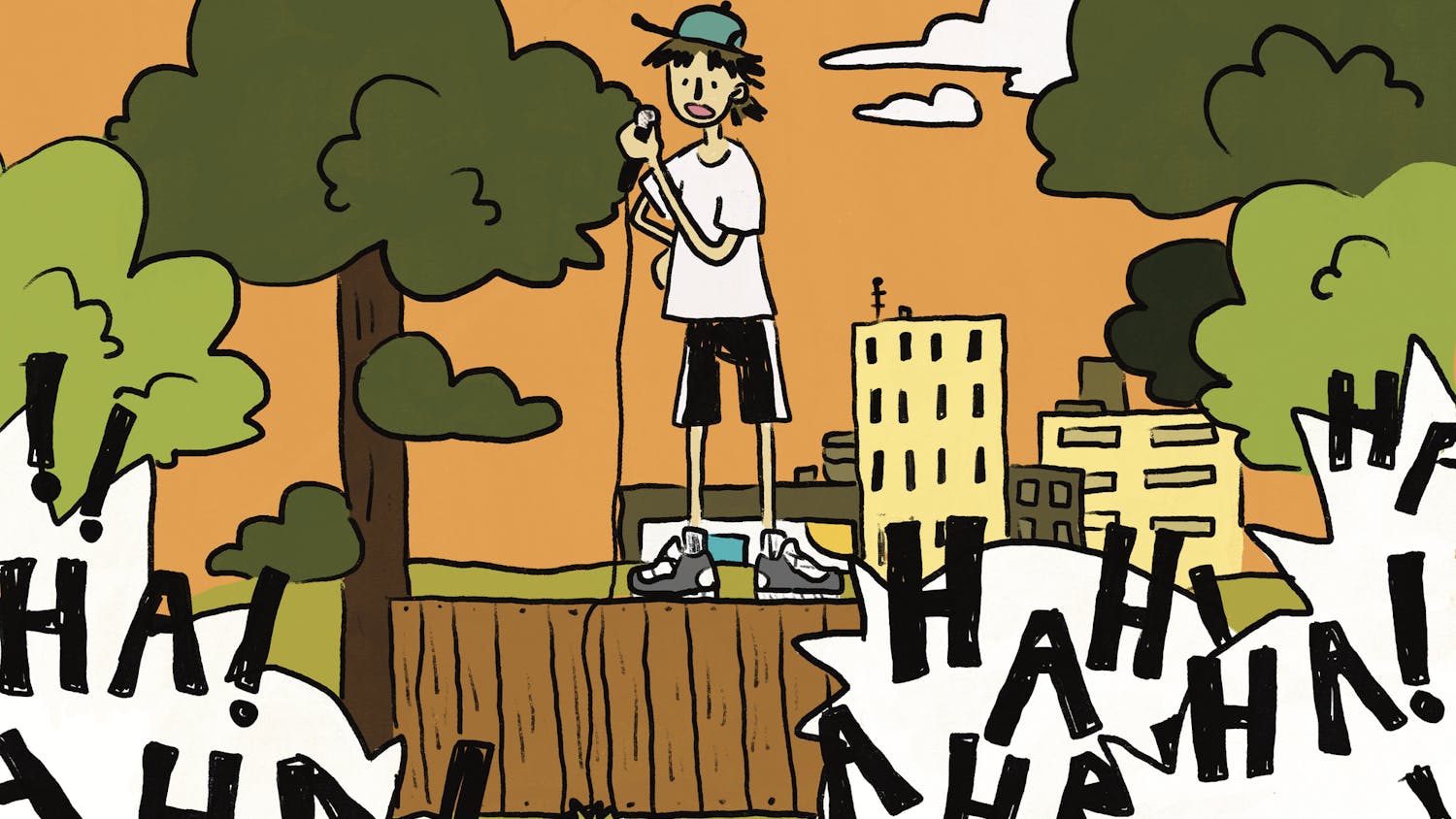The University Theatre audience erupted with applause at the conclusion of the opening night's production of "Translations."\nBut that was only after more than a month of practicing four hours a day, five days a week.\n"Translations" tells the story of British imperialism and its effects on the Irish culture. The play is set in the small fictional village of Baile Beag, Ireland, and depicts the deterioration of the Irish culture as the British displace the native language, Gaelic.\nEveryone involved with the play said it went through many stages, and has come a long way since the first week of practice.\n"The first day that we got back from break, auditions were held," said senior Kurt Schlachter, who plays Yolland. "Then we started rehearsals later that week, after callbacks."\nNinety-seven people, with different majors and backgrounds, tried out for the ensemble cast of 10 actors.\nSenior Jennifer Walls, who plays Sarah, said many people were responsible for the development of the play, including the dramaturg, director, dialect coach, costumers, lighting crew, stage crew, stage managers, assistant directors and a host of theater students who help during the performances. \nMany of these people do their work before the cast starts to rehearse. The dramaturg, who does the research for the play, had to find out what the time period was like and how the stage crew, actors and costumers could reflect that.\n"The dramaturg does a lot of research on the time period," Walls said. "They gave the cast packets of information to study. We were getting a lot of help from the dramaturg and the director." \nThe play begins when the cast meets for the first read-through. Walls said once the first read-through is over, the work starts to pile up.\n"After the first read through we went into private sessions with the dialect coach and then we started rehearsals right away," she said. \nDuring rehearsals, she said the cast did a lot of detailed work until it was ready for full run throughs. \nThe cast then goes into "tech" rehearsal. Walls said tech rehearsal is when floor lighting, music and costumes come together. Soon after that, the cast is doing full runs with tech and costumes until opening night.\nCast members faced different obstacles, including managing their time. \nGraduate student Chris Nelson, who plays Manus, had to feign a limp for his part. Nelson met with professor George Pinney, the movement coach. After consideration and practice, Pinney and Nelson decided on a limp that affected the hip instead of the knee. Nelson must swing his upper body and hip joint around to get his leg caught up with the rest of his body.\nSuch detailed performance requires a certain amount of passion and motivation for the final product.\nWalls said Director Bruce Burgun has a unique and successful method of instilling enthusiasm in the cast.\nBurgun, who has worked on more than 100 productions, said the theme is one of the most challenging things about directing "Translations."\n"When you take somebody's language away, you really steal their culture, and in stealing their culture, you undercut their identity," he said.\nThis is the message Burgun hopes to communicate through this production. He said he wants the play to spark debate about language, culture and identity, and how they are intertwined.\nBecause of these deeper themes, Burgun said it is important that the actors are passionate about the play. To achieve this, he said he motivates his cast using what he calls "spirit exercises." \nFor a spirit exercise, the actors bring something performance-oriented to rehearsal. Burgun said they could sing, act, improvise or read something -- anything -- that somehow communicates the spirit of the play from their character's perspective.\nSenior George Bookwalter, who plays Hugh, read a poem he wrote for one of the exercises. Bookwalter said the poem had humorous and serious points, like the play. \nSenior Ray Tice, who plays Jimmy Jack, thought of something different for his "spirit exercise."\n"I taught my fellow cast members dirty words in Latin," he said. "I liked it because it was different from the others."\nJimmy Jack is an elderly character who is infatuated with Greek mythology. Most of his lines are in Greek or Latin.\nOne of the most difficult aspects of this play was mastering the characters' different accents. Visiting assistant professor Mary Baird, the voice and dialect coach, worked closely with the cast to help members replicate authentic accents. \nBaird said one thing that makes "Translations" different from other productions is that all of the characters except for two are from the same region.\n"Consistency is the biggest challenge," Baird said. "Getting everyone to sound like they are from the same place."\nBaird coached the students in the dialect and fine-tuned their vocal performance. She said she works with the group and then with the individual characters, depending on their ability and need.\n"If the language isn't correct, you can lose the history of the culture in 'Translations,'" said Thomas Shafer, dramaturg for the University Theatre.\nTo ensure authenticity, Shafer had to find someone in the area who spoke Gaelic. Shafer found Patty Smith, a native of Ireland.\n"Patty came in and read several phrases from the play for me. We recorded them several ways, so that the inflections would be exact," he said.\nOnly after all of these aspects of production were pulled together was "Translations" ready to debut. \nSchlachter said the hard work was evident opening night.\n"It's no longer about lines; it's more about being honest," Schlachter said. "We hit that opening night"
Play replicates dialect, costumes with care
'Translations' focuses on Gaelic language
Get stories like this in your inbox
Subscribe





